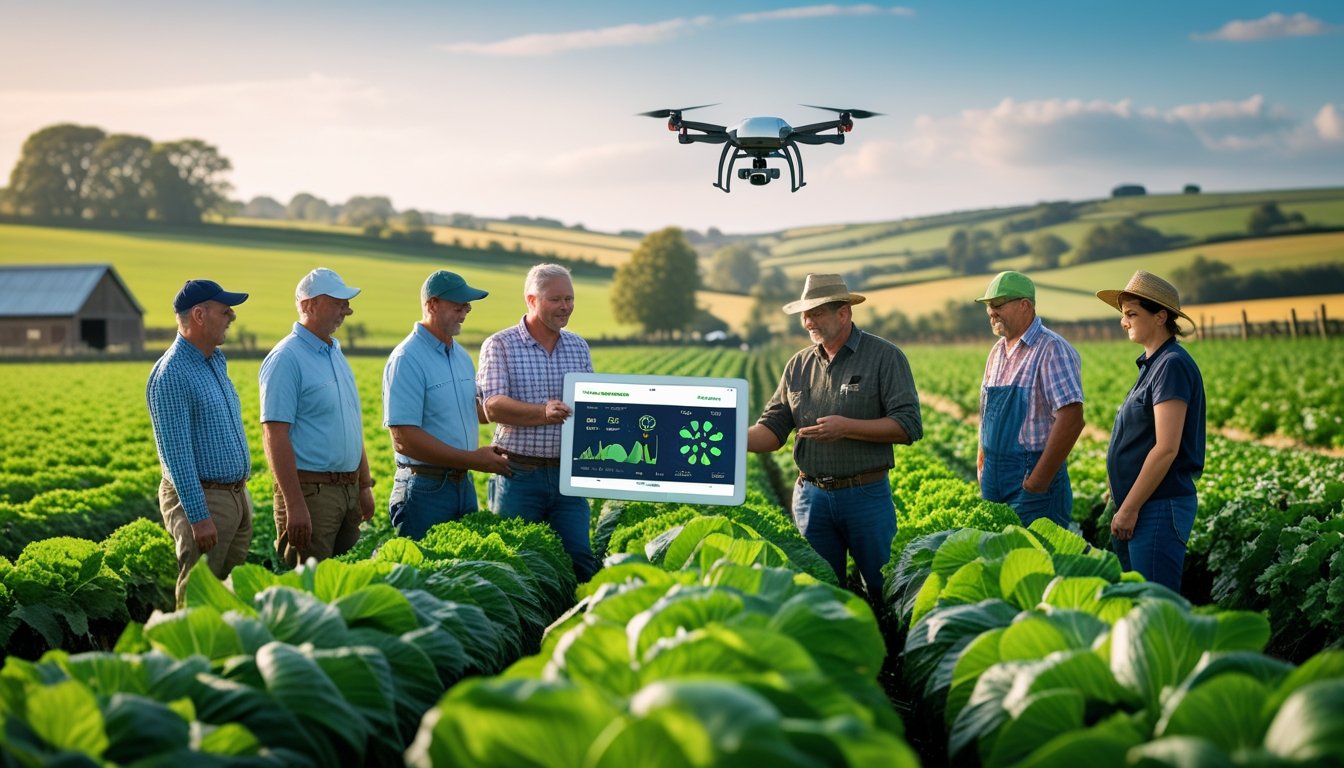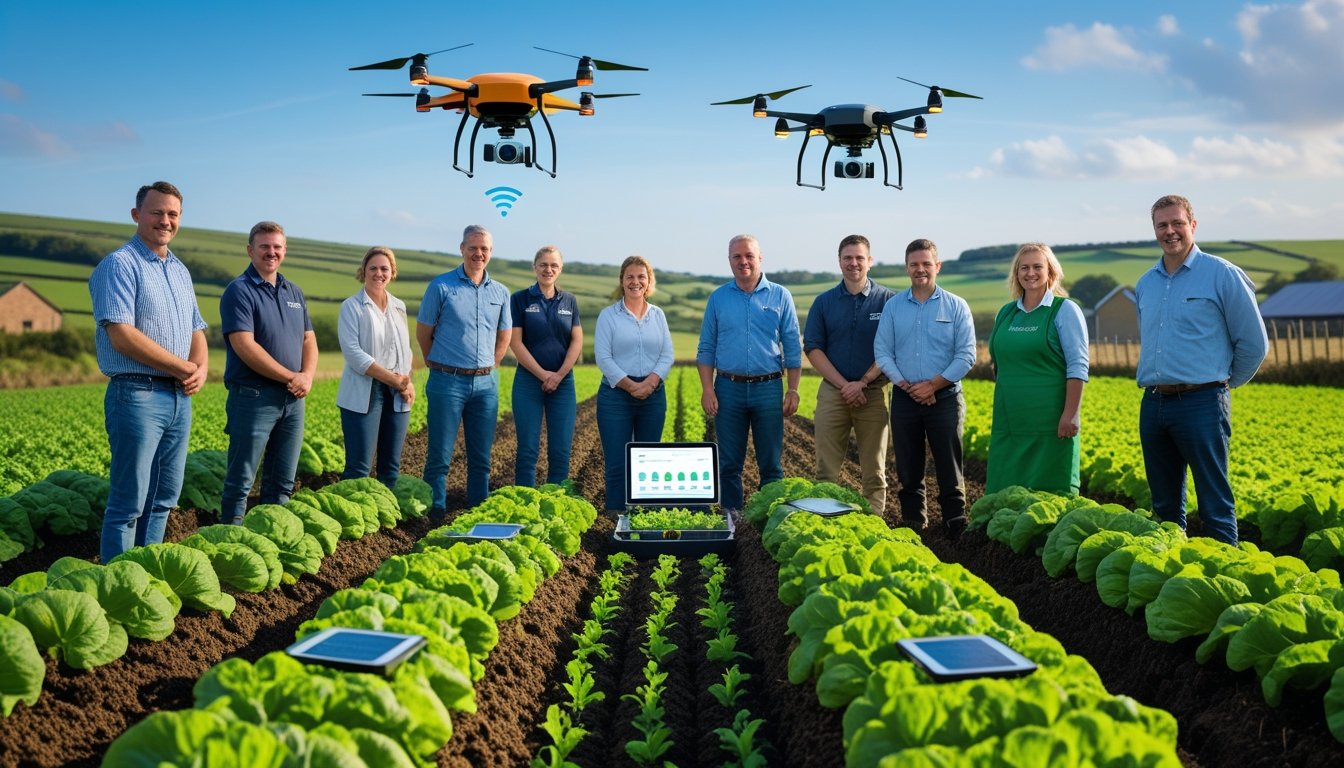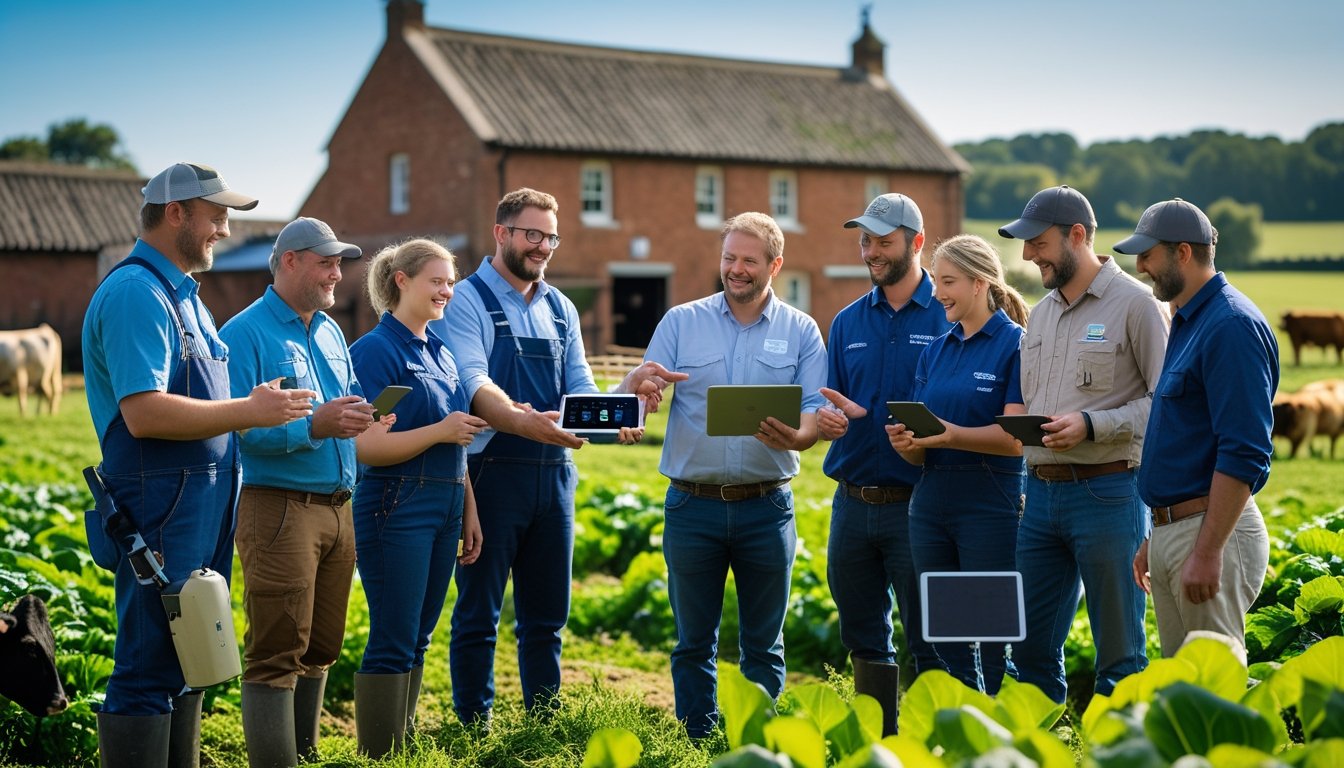Late updated: 28 Sep 2025 09:09
Written by: Oliver Bennett
Integrating AI Into UK Rural Community Farming Practices: Transforming Agriculture
The integration of artificial intelligence into rural community farming practices in the UK marks a pivotal transformation in agriculture. As innovations advance, we're witnessing significant changes in how farms operate, promising greater productivity and efficiency. AI aids farmers by enabling data-driven decisions, leading to more sustainable and effective farming practices. This technological revolution is not just reshaping farming techniques but also boosting local economies by enhancing job opportunities and supporting community growth.

The fusion of AI technology with traditional farming methods offers a fresh perspective on agricultural sustainability. By incorporating AI, rural farms can optimise resources, reduce waste, and ultimately improve yield. This harmonious blend of human expertise and machine intelligence holds the potential to revolutionise the way communities approach farming, paving the way for a more resilient future.
As we delve further, we explore how these advancements are being implemented in rural areas. The adaptation of AI in agriculture presents both opportunities and challenges, urging us to consider how best to integrate new technologies with existing systems. This exploration invites us to think about the future of farming and how innovation can enhance not only productivity but also sustainability.
Key Takeaways
- AI-driven changes are transforming UK rural farming.
- Sustainable integration enhances community farming.
- Addressing FAQs helps understand tech adoption.
AI-Driven Transformation of UK Rural Community Farming
Artificial Intelligence is revolutionising rural UK farming by enhancing productivity, sustainability, and efficiency. With the integration of AI technologies, the face of traditional farming is changing, leading to smarter and more adaptable practices.
Adoption of Artificial Intelligence in Farming Practices
The shift towards AI in farming practices is evident as rural UK communities embrace technology to tackle challenges and unlock new opportunities. AI helps us process large volumes of data collected via IoT devices, enabling informed decisions that optimise crop and livestock management.
Rural farmers increasingly rely on ICT and machine learning to predict weather patterns and manage resources efficiently. The industry benefits from targeted solutions that cater to both large farms and smaller, community-focused projects. AI bridges the digital divide by offering tailored solutions, ensuring that even smaller farms can leverage cutting-edge technologies to boost their productivity.
Precision Agriculture: Technologies and Implementation
Precision agriculture leverages AI to enhance the specificity of farming techniques. By utilising drones and IoT networks, we collect data on soil conditions, crop health, and moisture levels. These insights allow for precise interventions, such as targeted irrigation or fertiliser application, reducing waste and increasing yields.
Industry 4.0 technologies enable smart farming solutions, including intelligent machinery and sensors, which adapt to environmental and crop conditions in real-time. Data analytics plays a crucial role in interpreting collected information, further refining agricultural methods and strategies to suit specific needs and improve the overall sustainability of farming practices.
Automation, Mechanisation, and Smart Farming Solutions
Automation and mechanisation in smart farming solutions enhance efficiency and reduce manual labour demands. AI-powered machinery offers real-time monitoring and adjustments, streamlining operations from planting to harvesting. These advancements support precision in fertilisation, planting, and pest control, minimising input costs and maximising outputs.
As we integrate AI with existing agricultural frameworks, combining technology with traditional wisdom becomes vital. Continuous innovation in automation promises transformative impacts, particularly in enhancing agricultural productivity and addressing the digital divide in rural communities. This synthesis of knowledge and technology ensures that UK rural farming remains competitive and sustainable.
Sustainable Integration and Governance in Rural Agricultural Communities

In UK rural farming, AI enables sustainable agriculture by enhancing environmental management and decision-making. It helps engage local businesses and improves market access, fostering balanced community growth.
Sustainability and Environmental Impact in AI-Enabled Farming
AI technologies revolutionise sustainability in agriculture by optimising resource use, thus minimising environmental impact. Precision farming allows us to apply water and fertilisers precisely where needed, reducing waste and environmental degradation. This approach conserves water resources and improves soil management, crucial for sustainable development.
By simulating different agricultural conditions, digital tools facilitate better crop management. They help forecast weather patterns and pest infestations, allowing for timely interventions. As a result, these technologies play a significant role in enhancing the overall resilience of farming communities.
Governance, Decision Making, and Digital Equity
AI offers transformative potential in governance and decision-making within rural agricultural communities. Improved data-driven decision-making supports more effective policy implementation and community development strategies. This is crucial in bridging the digital divide in rural areas.
Effective governance requires inclusive digital policies that empower farmers with access to digital tools and training. Ensuring digital equity is vital, enabling all stakeholders to benefit from technological advancements. Involving local authorities and organisations in decision-making processes ensures policies meet the specific needs of the community.
Engagement of Local Businesses and Market Access
Local businesses stand to gain tremendously from integration with AI in farming. Enhanced market access through digital platforms connects farmers to broader markets, improving product visibility and profitability. This fosters stronger economic ties and opportunities for small-scale producers, beneficial for developing countries.
Moreover, engaging local businesses in the AI transition encourages skill development and employment. Collaborations between tech companies and agricultural producers can spur innovation, creating a vibrant ecosystem for sustainable development. This synergy is essential to evolve the precision farming market and bolster community resilience in Latin America and beyond.
Frequently Asked Questions

Integrating artificial intelligence into UK rural farming is transformative. We explore how AI can aid crop management, the financial aspects for small farmers, sustainability, challenges in adoption, weather prediction, and available training resources.
How can artificial intelligence support the management of crop cycles in UK rural farms?
AI technology can enhance crop cycle management by offering precise data analysis. Machine learning algorithms can predict optimal planting and harvesting times. Advanced sensors monitor soil health, reducing resource waste and increasing efficiency. Farmers in rural areas gain tools to make informed decisions, improving both yield and productivity.
What are the cost implications for small-scale farmers adopting AI technologies?
Implementing AI in small-scale farming involves both initial investment and ongoing maintenance costs. Prices vary based on technology type and scale. While initial costs may seem high, potential long-term savings through improved efficiency and reduced resource waste can offset these expenses. Financial assistance and subsidies may be available to ease this transition.
In what ways can AI contribute to sustainable farming practices in the UK countryside?
AI facilitates sustainable farming by optimising resource use and reducing environmental impact. Through precise water and fertiliser application, AI reduces waste and contamination. Predictive analytics help anticipate pest infestations, allowing for targeted intervention. This contributes to the resilience and sustainability of rural farms.
What are the challenges faced by UK rural farmers in integrating AI into their existing agricultural systems?
Challenges in integrating AI include financial barriers, technical knowledge gaps, and infrastructure limitations. Many rural areas may struggle with stable internet connectivity, hindering technology use. Skills training and comprehensive support are essential for overcoming these hurdles, ensuring successful AI adoption in diverse rural settings.
How does AI technology help in predicting and mitigating the risks of adverse weather conditions for UK farming communities?
AI enables advanced weather modelling and forecasting. Predictive analytics help identify potential weather risks, allowing farmers to take preventive measures. This proactive approach minimises crop damage from adverse conditions such as droughts or floods, enhancing the resilience of rural farming communities against climate challenges.
What training and support programmes are available for UK rural farmers to learn about utilising AI in farming?
Support for rural farmers includes training programmes and workshops focused on AI applications in agriculture. Government initiatives and agricultural organisations often offer resources and guidance to aid technology adoption. These programmes aim to build farmers' confidence in using AI tools effectively, contributing to the evolution of farming practices.
